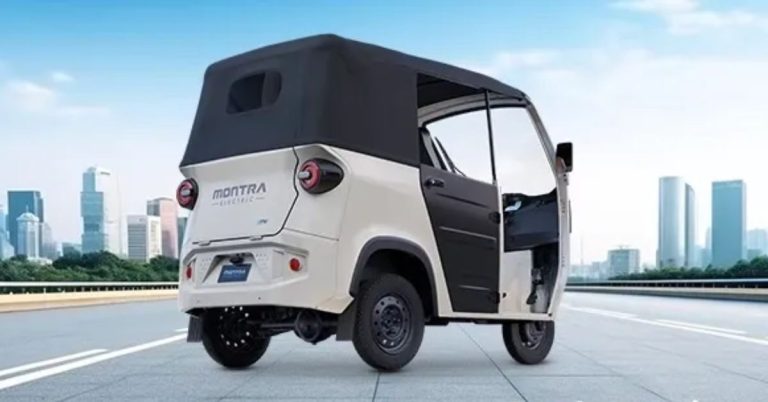
Maharashtra is poised to roll out a significant new policy aimed at curbing vehicular air pollution: the “No PUC, No Fuel” rule. Under this proposal, vehicles without a valid Pollution Under Control (PUC) certificate will be denied fuel at petrol stations. Announced by Transport Minister Pratap Sarnaik, this move is intended to tighten enforcement, eliminate fake certificates, and push vehicle owners to maintain emission standards.
In this blog, we’ll explore what this policy means, why it’s being considered, the challenges that might arise, and how it could reshape driving in Maharashtra.
What is the “No PUC, No Fuel” Policy?
- Definition: Vehicles must possess a valid PUC certificate to be eligible for fuel at petrol stations. Without it, pumps will not dispense petrol or diesel.
- Verification Mechanism: Plans include installing CCTV cameras at fuel stations that scan registration plates and check against a database of valid certificates. QR code-based PUC certificates and unique identifiers (UID) are proposed to prevent fraud.
- On-the-spot Issuance: To avoid excessive inconvenience, fuel stations are expected to have the capability to provide PUC certificates immediately after testing vehicles.
Why the Policy is Being Proposed
- Rising Pollution Levels
Vehicular emissions are a significant contributor to poor air quality in cities across Maharashtra. The government believes stricter control over emissions is essential. - Fake or Tampered PUC Certificates
There are concerns around PUC certificates that are either forged or issued without proper testing. This undermines the purpose of having emission checks. The system hopes to address this through authentication (QR/UID) and stronger monitoring. - Legal and Regulatory Framework
The Motor Vehicles Act requires every vehicle to hold a valid PUC. The proposed policy is a way of enforcing the law more strictly. - Public Health and Environment
Cleaner air is not just about environment; it’s about reducing health risks (respiratory illness, pollution-related diseases) and improving quality of life, especially in densely populated urban areas.
Potential Challenges and Concerns
While the intent behind the policy is commendable, there are several practical issues and concerns that need to be addressed:
- Accessibility and Convenience
Many motorists may find it difficult to obtain a PUC certificate quickly—especially in rural areas or places with fewer certified centers. If petrol pumps are too far from PUC centers, or if there are delays in testing, this could inconvenience many people. - Infrastructure Needs
Petrol pumps will need to be equipped with adequate CCTV systems, plate-scanning technology, and trained personnel. Also, PUC centres need standardization and capacity upgrades. Implementation costs could be steep. - Dealing with Fake Certificates
Even with verification, stamping out the network of fake PUCs requires vigilance, strong oversight, regular audits, and possibly legal penalties for fraud. - Enforcement and Corruption
Enforcement agencies will need to ensure fairness and transparency. There’s a risk that enforcement may disproportionately affect lower-income vehicle owners who may be less aware of rules or have less access to PUC services. - Public Awareness and Transition Period
Many vehicle owners may not yet be aware of the change. A transition period, public awareness campaigns, and perhaps leniency initially would help avoid public backlash.
What the Policy Could Look Like in Practice
Here’s how things might play out once “No PUC, No Fuel” is rolled out across Maharashtra:
| Element | Probable Feature |
|---|---|
| PUC Certificate Validity | Terms may vary based on vehicle type: BS‑III vehicles may get shorter validity (say 6 months), newer vehicles longer (1 year). |
| Issuance Points | Petrol pumps, authorised garages, showrooms may issue PUC certificates. |
| Verification | QR codes, UIDs, scanned plates linked to database—no fuel until check passes. |
| Penalties for Non‑compliance | Denial of fuel is the primary one. There may also be fines, cancellation of certificates, and even possible legal actions for counterfeit certification. |
Broader Implications
- Environmental Impact: If successfully enforced, this policy could meaningfully reduce vehicular emissions, especially particulate matter (PM2.5, PM10), CO, NOx, etc., in urban areas.
- Behavioural Shift: Vehicle owners will be more motivated to maintain their engines, get regular servicing, and treat emission checks as routine rather than an afterthought.
- Boost to Clean‑Vehicle Market: Might accelerate adoption of cleaner vehicles (BS VI, CNG/LPG, electric) if compliance with emission checks becomes burdensome for older or poorly maintained vehicles.
- Administrative Load: Transport departments, fuel station owners, and PUC centres will have higher responsibility. They would need systems, staff, monitoring, and maintenance to support the new rules.
- Equity Considerations: Policymakers will need to ensure that vehicle owners in remote or low-income areas are not unfairly penalized. Subsidised or mobile PUC centres could help.
What to Expect Next
- The policy is expected to be introduced soon, though exact dates are yet to be officially confirmed.
- Transport department is in discussions with stakeholders (fuel station owners, PUC centres, vehicle owners) to figure out logistics.
- Infrastructure upgrades (CCTV, plate scanners, QR technology) will be rolled out over time. Fuel stations may begin trial runs.
- Public awareness campaigns are likely—“get your PUC now”, what counts as valid, how to avoid getting caught without one.
Conclusion
The “No PUC, No Fuel” policy in Maharashtra is a bold and potentially game‑changing move. On paper, it addresses some of the root causes of vehicular pollution: non‑compliant vehicles, fake certificates, poor enforcement. If implemented well, it could lead to cleaner air, healthier populations, and a stronger culture of vehicle maintenance.



